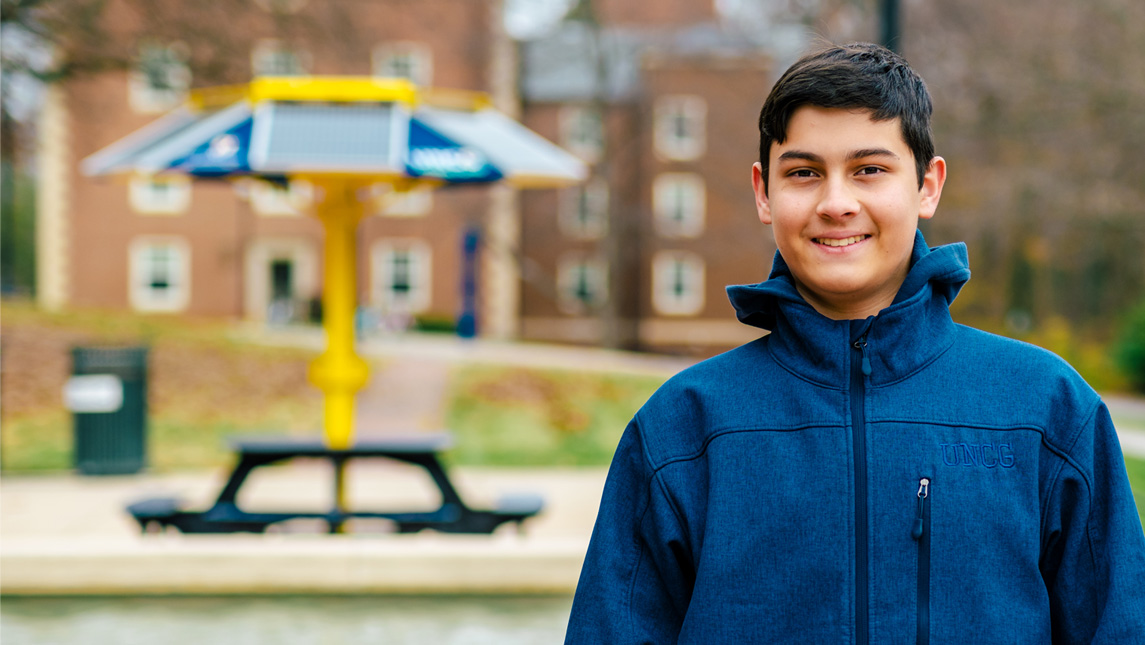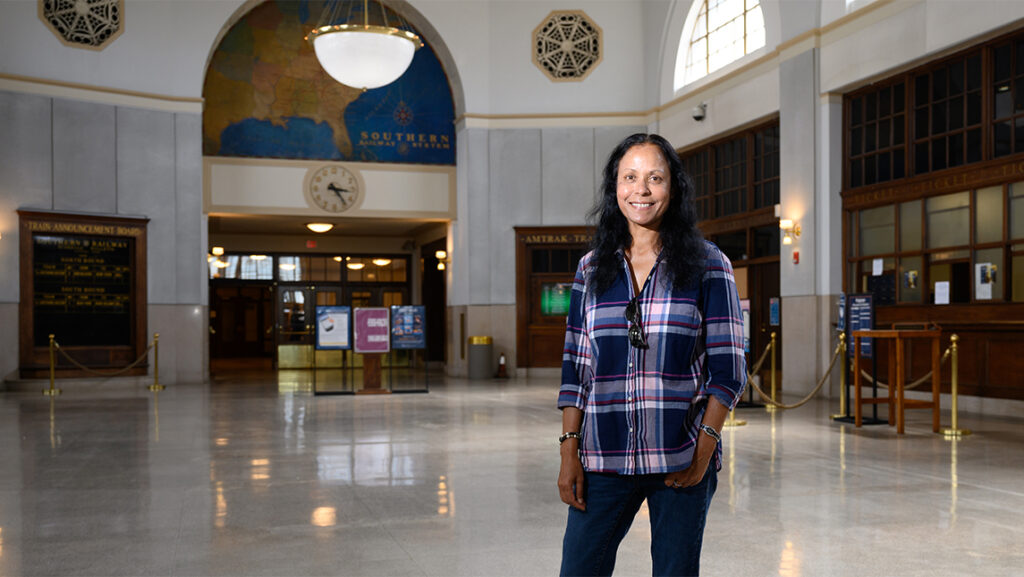UNCG Middle College sophomore Neil Kapileshwari may be a teenager, but he’s already working to help the environment, starting with solar-powered picnic tables paid for through the UNCG Green Fund.
“We need to protect our planet from climate change, using all of our resources,” Kapileshwari says. “We need to try to stop it, slow it down or reverse it.”
Solar-Powered Solutions
With help from his parents, who are both UNCG employees, the now 16-year-old submitted a proposal to the Green Fund committee to pay for solar-powered picnic tables on the Moran Commons Plaza.
“We were all thrilled when we received Neil’s proposal because of the way it was written. It was well-organized and detailed, pretty impressive for a high school student,” says Theo Noussi, a member of the UNCG Green Fund committee.
The tables, built by EnerFusion, Inc, are made from poly-recycled plastic materials and allow students to charge various electronic devices, both through outlets and wirelessly. Each table is powered entirely by solar panels that make up the umbrella. A timed lighting system in the umbrella, activated with the push of a button, allows the tables to be used day or night.

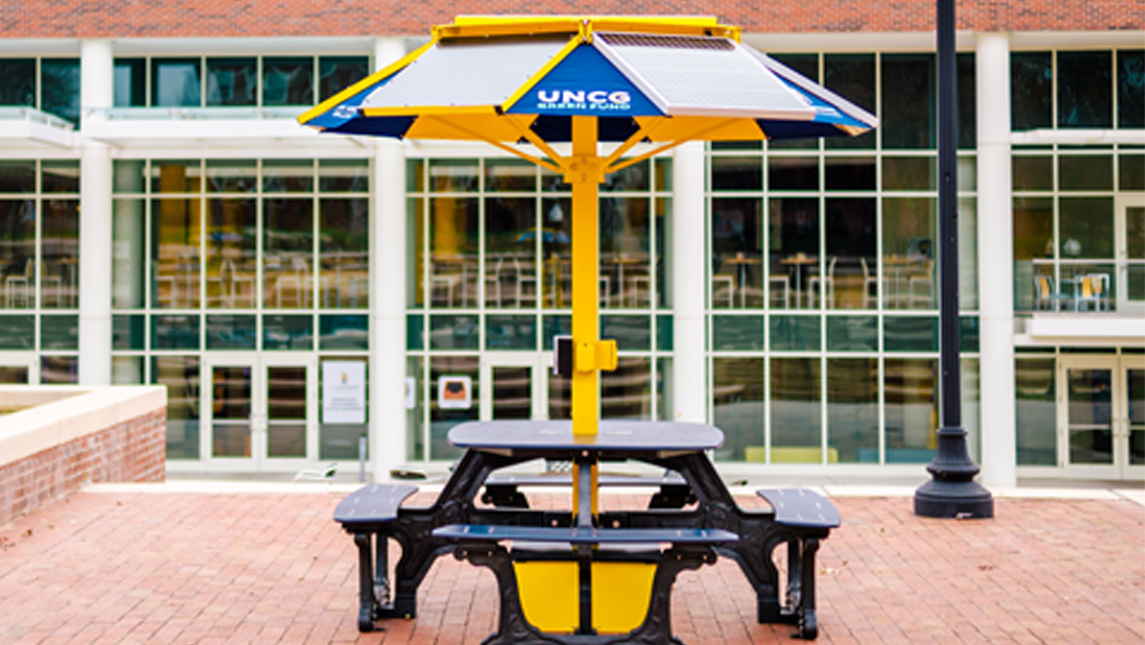

Students Interacting with Sustainability
“The tables will let students interact with a sustainable solution that saves energy and has zero greenhouse gas emissions. Seeing and using them on a daily basis is going to be a reminder that we can all make a difference in the fight against climate change,” says Sean MacInnes, Sustainability Specialist in the UNCG Office of Sustainability.
The UNCG Green Fund was created in 2016 when UNC Greensboro students elected to allocate a portion of their student activity fees to environmental stewardship. Projects are approved on a monthly basis by a committee of students, with guidance from faculty and staff. Eighty projects have been supported since the fund was created.
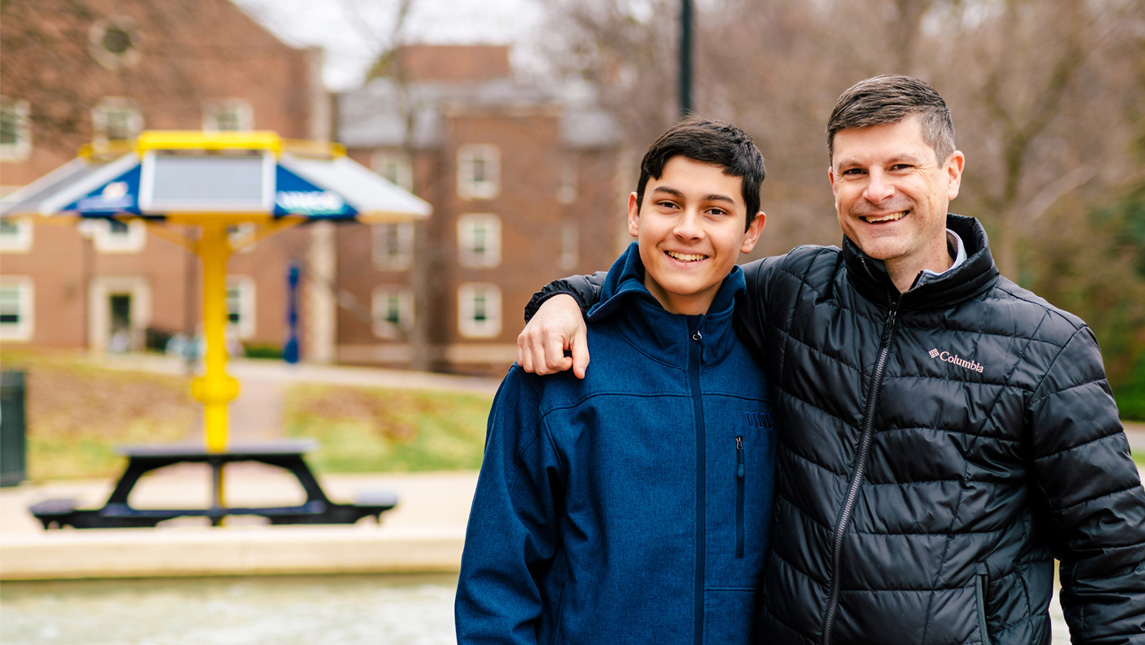
Think Outside the Box
Members of the Green Fund committee want students, staff and faculty to submit a variety of ideas, even if they may be outside of the box. Projects should focus on one of UNCG’s four fundamental pillars of sustainability: social equity, environment, economy, and aesthetics. The overall goal is to support the UNCG’s goal to become carbon neutral by 2050, while prioritizing proposals that focus on Just Sustainabilities and Sustainability Outreach and Education. Some examples of Green Fund projects include a public art display on Gate City Boulevard, a pollinator garden at Peabody Park, and a student-led bird-window research collision project.
“When people think of the Green Fund, they think of the environment, but we fund things that are beyond the environment: social justice projects, social equity, anything that evens the playing field in communities because we are a part of the environment,” says Zelena Johnson, a UNCG Green Fund committee member.
The tables feature the Office of Sustainability and Green Fund logos on the solar-panel umbrellas and those involved with the Green Fund hope the visibility will bring in more proposals and start conversations around sustainability.
“I hope students can enjoy campus and still know we are trying to be more green, trying to be on the cutting edge of technology,” Kapileshwari says.
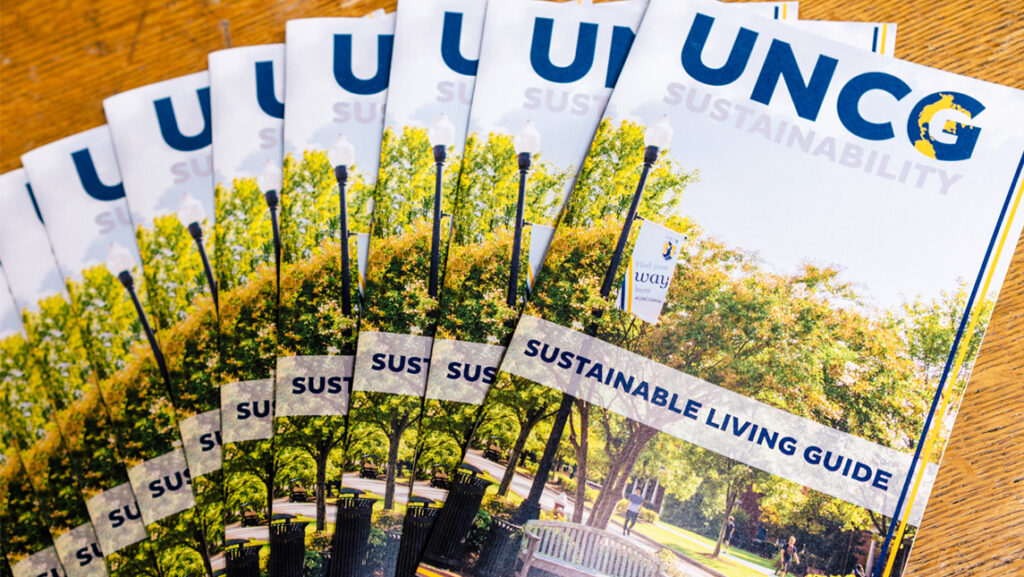
Green Fund Projects are approved monthly. Submit an idea here.
Story by Avery Craine Powell, University Communications
Photography by Sean Norona, University Communications
